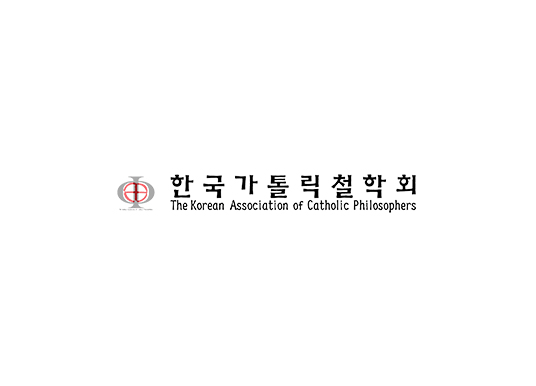짐멜의 개인법칙과 죽음 이해
Understanding Simmel’s Law of the Individual and Death
박병준
서강대학교
가톨릭철학
2021, vol., no.37, pp. 37-70 (34 pages)
한국가톨릭철학회
1. 들어가는 말
2. 삶의 철학으로서 ‘개인법칙’
3. 개인법칙의 토대로서 삶 전체성을 조망하는 죽음
4. 나가는 말
초록
본 논문은 짐멜 철학의 핵심 개념인 개인법칙과 죽음의 관계와 삶에서 죽음이 주는 철학적 함의를 구명한다. 이와 관련하여 본 논문은 1장에서 짐멜의 개인법칙을 검토하고, 2장에서 삶의 전체성과 총체성을 만드는 죽음을 논의한다. 마지막 3장에서는 짐멜 철학의 개인법칙에 담긴 철학적 함의와 오늘날 부상하고 있는 철학실천의 관점에서 그 의의를 밝힌다.
짐멜의 개인법칙은 주체에 기반한 상호 주관성과 보편성을 추구하던 근대 사고에 대한 비판에서 출발하며, 개개인의 고유한 주체성을 극대화함으로써 현대 사상에 미친 영향이 크다. 짐멜은 개인 법칙을 개인과 삶, 사회와 문화, 도덕과 윤리를 다루는 그의 철학의 핵심 개념으로 삼는다. 짐멜은 개인법칙을 통해서 삶에서 드러나는 모든 개인의 공통성보다는 오히려 개개인의 고유성과 개인의 삶의 전체성과 총체성의 중요성을 강조한다.
개인법칙은 개인성의 극대화를 통해 인간 행위의 준거를 보편의 질서가 아닌 개개인의 행위의 질서 위에 세운다. 그리고 개인의 개별적 행위의 객관적 근거를 그의 인격과 삶의 총체성과 전체성에 찾고자 한다. 이때 무엇보다도 죽음이 중요한 계기로서 작용한다. 짐멜 철학에서 죽음은 삶의 종말이거나 삶의 단절로서의 의미를 넘어서 삶을 전체적이며 총체적으로 모아 의미 충만하게 만드는 삶의 핵심 요소이다. 개인의 삶 전체성으로부터 개인의 행위의 당위성을 끌어내고자 하는 개인법칙에서 죽음을 배제한 채 객관적인 개인법칙의 성립은 사실상 어렵다. 그만큼 죽음은 짐멜의 개인법칙을 이해하는 핵심 개념이다. 죽음은 오늘날 실존철학에서 인간 현존재가 존재의 의미 밝힘을 통해 자기실현을 하고, 본래적인 자기 실존을 획득하는 주요 계기로 이해되듯이, 짐멜 철학에서 개인의 삶과 행위에 당위를 부여하는 삶의 불가결한 요소로 이해된다. 모든 것이 개인화되고 있는 오늘의 사회 안에서 개인법칙은 단순히 개인의 개인성만을 강조하는 것이 아니라, 자기 삶을 총체적이며 전체적으로 만들면서 자기 행위를 책임 있는 행위로 만들도록 촉구하는 역할을 한다.
This paper investigates philosophical implications of death in life illustrated by the relationship between the Law of the Individual and death, which are the core concepts of Simmel’s philosophy. This paper reviews Simmel’s Law of the Individual in Chapter 1 and discusses the totality of life created by death in Chapter 2. Finally, Chapter 3 reveals the significance of the philosophical implications contained in the individual laws of Simmel’s philosophy and the philosophical practice that is emerging today.
Simmel’s Law of the Individual begins with criticizing modern thinking, which pursues subject-based mutual subjectivity and universality and has a significant influence on modern thinking by maximizing each individual’s unique subjectivity. Simmel incorporates the Law of the Individual as a core concept of his philosophy surrounding individuality and life, society and culture, and morality and ethics. Simmel emphasizes the importance of individual uniqueness and an individual life’s totality rather than the similarity of all individuals revealed in life through the Law of the Individual.
The Law of the Individual establishes the basis of human action on the order of individual actions rather than the universal order through the maximization of individuality. It also seeks to find the objective basis of an individual’s actions in the totality of their personality and life. Above all, death acts as an important occasion. In Simmel’s philosophy, death goes beyond the meaning of the end or severance of life, and is a key element of life that gathers life as a whole and full of meaning. It is practically difficult to establish an objective individual rule without death from the individual rule that seeks to derive the justification of an individual’s actions from the totality of an individual’s life. As such, death is a key concept in understanding Simmel’s law of the Individual. Death is understood as an indispensable element of life that gives justification to individual life and behavior in Simmel’s philosophy, just as human existence is understood as a major opportunity to realize itself through clarification of the meaning of existence in today’s existential philosophy. The Law of the Individual does not simply emphasize individuality but also urges people to make their lives holistic and make their actions responsible especially in today’s society where everything is personalized.

